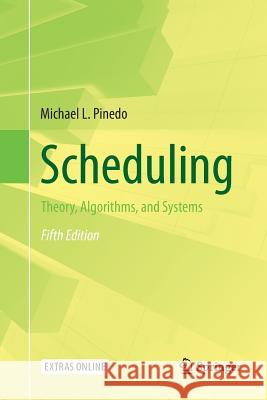Scheduling: Theory, Algorithms, and Systems » książka
topmenu
Scheduling: Theory, Algorithms, and Systems
ISBN-13: 9783319799735 / Angielski / Miękka / 2018 / 670 str.
Kategorie:
Kategorie BISAC:
Wydawca:
Springer
Język:
Angielski
ISBN-13:
9783319799735
Rok wydania:
2018
Wydanie:
Softcover Repri
Ilość stron:
670
Waga:
1.04 kg
Wymiary:
23.5 x 15.5
Oprawa:
Miękka
Wolumenów:
01
Dodatkowe informacje:
Wydanie ilustrowane











